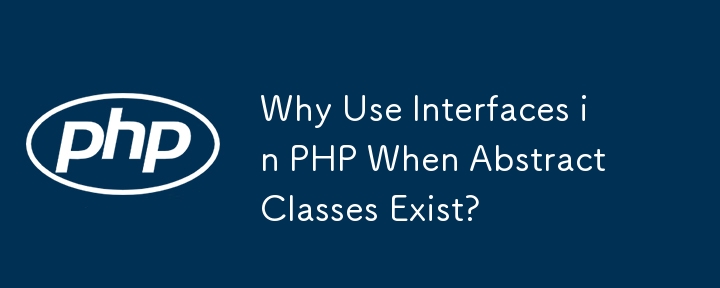

The Role of Interfaces in PHP and Its Distinctive Features
In the realm of object-oriented programming, PHP interfaces play a significant role, enabling developers to define abstract method specifications that classes implementing them must adhere to. However, unlike abstract classes, interfaces do not contain method implementations.
This distinction raises the question: why do interfaces exist when abstract classes provide similar functionality?
The answer lies in the fundamental principles of object-oriented theory, particularly in the context of multiple inheritance. Multiple inheritance, where a class inherits from multiple parent classes, often leads to ambiguity and complexity. Interfaces emerged as a solution to this dilemma.
In PHP, interfaces provide a way to enforce method definitions without allowing multiple class inheritance. This compromise allows classes to implement multiple interfaces while avoiding the pitfalls of multiple inheritance.
In essence, interfaces offer the flexibility of enforcing consistent method definitions across multiple classes while preserving the integrity of object-oriented principles. By restricting inheritance to abstract classes and utilizing interfaces for method specification, PHP ensures code clarity, maintainability, and reliability.
The above is the detailed content of Why Use Interfaces in PHP When Abstract Classes Exist?. For more information, please follow other related articles on the PHP Chinese website!
 The difference between Fahrenheit and Celsius
The difference between Fahrenheit and Celsius
 The role of float() function in python
The role of float() function in python
 Configure Java runtime environment
Configure Java runtime environment
 What to do if the documents folder pops up when the computer is turned on
What to do if the documents folder pops up when the computer is turned on
 The role of registering a cloud server
The role of registering a cloud server
 How to buy Ripple in China
How to buy Ripple in China
 NTSD command usage
NTSD command usage
 phpstudy database cannot start solution
phpstudy database cannot start solution
 Usage of background-image
Usage of background-image




